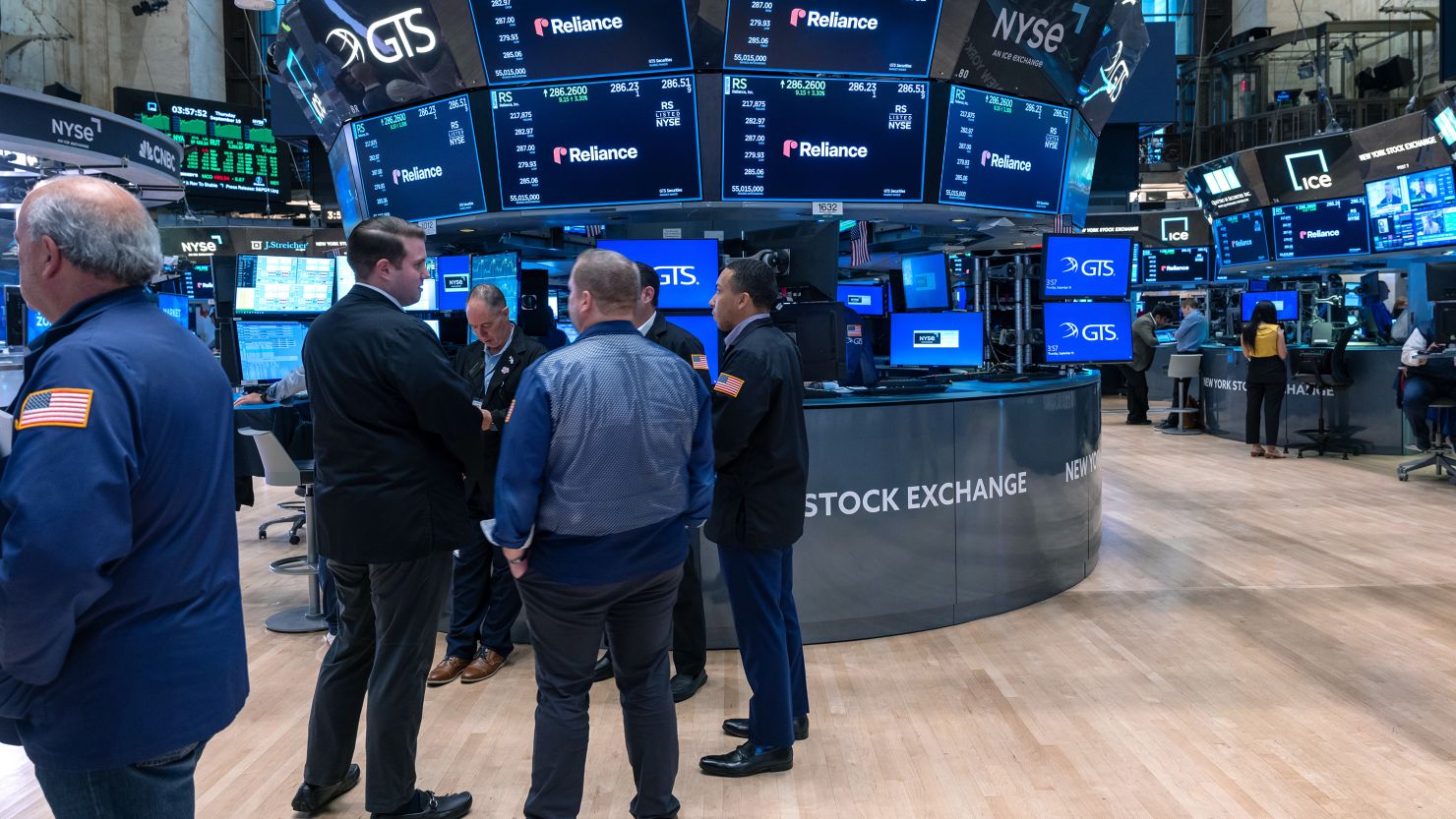The stock market is racking up record highs again. Investors are wasting no time moving into riskier assets from bitcoin to tech stocks after last week’s long-awaited rate cut from the Federal Reserve.
Last week, the S&P 500 and Dow surged to new highs after the Fed said it is cutting interest rates by half a point, marking a pivot from the aggressive hiking cycle that brought rates to a 23-year high.
CNN’s Fear?&?Greed?Index, which measures seven barometers of market sentiment, is at a “greed” reading.
Strong economic data this week has kept the party going. The S&P 500 on Thursday marked its 42nd record high close in 2024, while the Dow marked its 32nd record high close of the year on Friday. All three major indexes notched a positive week. The Dow gained 0.6%, the S&P 500 added 0.6% and the Nasdaq Composite climbed about 1%.
The Personal Consumption Expenditures price index, the Federal Reserve’s preferred inflation gauge, showed that the prices consumers paid for goods and services rose 2.2% last month on an annual basis, down from 2.5% in July. The reading was below expectations from economists polled by FactSet, and is a step closer towards the Fed’s 2% inflation target.
Fresh data this week has offered further encouragement that the economy is on solid footing. The third estimate for second-quarter gross domestic product showed that the US economy expanded at a solid 3% clip from the prior year.
“What seems to be unfolding before our eyes is a soft landing scenario that only the most optimistic could dream of,” wrote Gregory Daco, chief economist of EY, in a Thursday note. A soft landing is a scenario in which inflation comes down without the economy entering a recession.
Elsewhere, the average rate on a standard, 30-year fixed mortgage fell to its lowest level since September 2022 this week, according to Freddie Mac data, providing relief for Americans stung by the tough housing market. Applications to refinance a mortgage soared 20% last week from the prior week, according to Mortgage Bankers Association data. The housing market is known for being sensitive to the ebbs and flows of the economy.
Investors are now looking to the September labor report due next Friday. Employers added an estimated 142,000 jobs last month, up from July’s dismal number, while the unemployment rate ticked lower, to 4.2%, offering hope that the labor market is weakening but still on solid footing. With the Fed’s focus now squarely on keeping the labor market healthy, Friday’s report will likely offer clues for the Fed’s next move at its November policy meeting.
Meanwhile, tech shares continued to gain this week on rate cut optimism and strong earnings from Micron. Nvidia shares jumped 4.6%, Tesla shares rose 9.3% and Meta Platforms shares added 1.1%.
In China, stocks ripped higher this week after the central bank introduced a package of measures aimed at stimulating its struggling economy, including lowering interest rates.
Oil prices fell for the week. The national average price of gas is about $3.21, according to GasBuddy. The Financial Times reported Thursday, citing anonymous sources, that Saudi Arabia is planning to scrap its $100 a barrel price target for oil.
Gold futures retreated from a fresh record high reached Thursday, the latest in a string of records it has set this year. Gold has notched repeated record highs this year, driven by central bank buying of the yellow metal and worries about the US economy’s health.
Bitcoin popped this week. The price of the cryptocurrency was last trading at about $65,747 a coin.
As stocks settle after the trading session, levels might change slightly.
CNN’s Bryan Mena and Elisabeth Buchwald contributed to this report.






